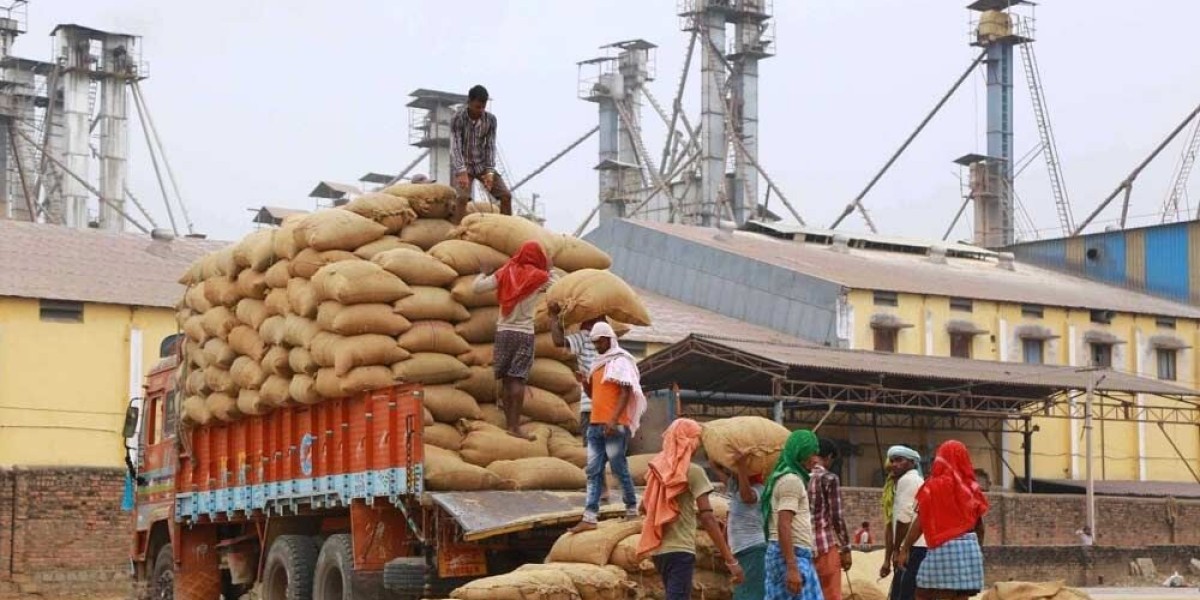India is one of the largest rice producers and exporters in the world, contributing significantly to the global rice market. Rice manufacturers in India play a crucial role in this supply chain, ensuring that high-quality rice reaches both domestic and international markets. This article delves into the history, major players, production processes, quality standards, challenges, and future prospects of rice manufacturing in India.
The Legacy of Rice Production in India
Historical Significance
Rice has been cultivated in India for thousands of years, with its origins tracing back to ancient civilizations in the Indus Valley. Over the centuries, rice has become a staple food for the majority of the Indian population, playing a central role in Indian cuisine and culture. India boasts a diverse range of rice varieties, including aromatic Basmati, short-grain Sona Masuri, and the nutrient-rich brown rice.
Cultural Importance
Rice is deeply embedded in Indian culture and traditions. It is a key component of daily meals and is used in numerous religious and ceremonial practices. Dishes like Biryani, Pulao, and Pongal highlight the versatility and significance of rice in Indian cuisine.
Major Rice Manufacturers in India
India is home to several prominent rice manufacturers who are known for their quality and innovation. These manufacturers cater to a wide range of rice varieties and have a significant presence in both domestic and international markets.
1. KRBL Limited
KRBL Limited is one of the largest and most renowned rice manufacturers in India. Established in 1889, KRBL has a long-standing legacy in the rice industry. The company is known for its flagship brand, India Gate Basmati Rice, which is synonymous with premium quality. KRBL's state-of-the-art manufacturing facilities and stringent quality control measures ensure that only the best rice reaches consumers worldwide.
2. LT Foods Limited
LT Foods Limited, the parent company of the Daawat brand, is another leading name in the rice manufacturing sector. With over 70 years of experience, LT Foods has established itself as a global leader. The company's commitment to innovation, quality, and sustainability has made Daawat Basmati Rice a preferred choice among consumers in many countries.
3. Kohinoor Foods Limited
Kohinoor Foods Limited, with its flagship brand Kohinoor Basmati Rice, has a significant presence in the rice market. The company exports its products to over 60 countries, catering to diverse culinary preferences. Kohinoor Foods' emphasis on authenticity and quality has earned it a loyal customer base globally.
4. Amira Nature Foods Ltd.
Amira Nature Foods Ltd. is known for its high-quality Basmati rice and a wide range of other food products. The company sources the finest grains and employs advanced processing techniques to maintain superior standards. Amira's dedication to quality and innovation has made it a trusted name in the industry.
5. Chaman Lal Setia Exports Ltd.
Chaman Lal Setia Exports Ltd. is a reputed manufacturer and exporter of Basmati rice. The company offers a variety of rice grades, catering to different market segments and consumer preferences. Their focus on quality and customer satisfaction has positioned them as a reliable player in the global market.
6. GRM Overseas Ltd.
GRM Overseas Ltd. is another key player in the Indian rice manufacturing industry. Known for its premium rice brands like Tanoush and Guru, GRM Overseas exports its products to over 38 countries. The company emphasizes innovation and quality, ensuring that consumers receive the best rice varieties.
The Production Process of Rice
The production of rice involves several meticulous steps, from cultivation to packaging. Each stage is critical in ensuring the rice's premium quality and maintaining its unique characteristics.
1. Cultivation
Rice cultivation begins with selecting the right seeds and preparing the soil. Farmers employ traditional and modern agricultural practices to cultivate rice. The crop requires specific climatic conditions, including a warm growing season and a cooler ripening period. The fertile plains of northern India provide the ideal environment for rice cultivation.
2. Harvesting
Harvesting rice is a delicate process. The grains are harvested at the right time to ensure optimal aroma and flavor. Traditional methods are often used to harvest the rice, minimizing damage to the grains.
3. Processing
Once harvested, the rice undergoes several processing stages. This includes cleaning, de-husking, polishing, and grading. Modern rice manufacturers use advanced machinery to ensure uniformity and reduce the chances of contamination. The processing techniques are designed to retain the natural aroma and texture of the rice.
4. Quality Control
Quality control is a critical aspect of rice production. Manufacturers implement stringent quality checks at various stages of production. This includes testing for purity, grain length, aroma, and moisture content. Certifications from recognized bodies such as ISO, HACCP, and FSSAI are crucial for ensuring compliance with international standards.
5. Packaging
Proper packaging is essential to preserve the quality of rice. Manufacturers use moisture-proof, air-tight packaging to protect the rice from humidity and pests. Innovative packaging solutions also enhance shelf life and convenience for consumers.
Quality Standards and Certifications
Maintaining high quality standards is paramount for rice manufacturers in India. Several certifications and standards are followed to ensure that the rice meets global quality expectations.
1. ISO Certification
ISO (International Organization for Standardization) certification ensures that the manufacturing processes meet international quality management standards. Rice manufacturers adhere to ISO guidelines to maintain consistent quality and safety.
2. HACCP Certification
HACCP (Hazard Analysis and Critical Control Points) certification is crucial for ensuring food safety. It involves identifying potential hazards and implementing control measures to prevent contamination. Rice manufacturers follow HACCP protocols to ensure the safety and quality of their products.
3. FSSAI Certification
The Food Safety and Standards Authority of India (FSSAI) certification is mandatory for food products in India. It ensures that the rice meets the required safety and quality standards. Rice manufacturers obtain FSSAI certification to comply with regulatory requirements and ensure consumer safety.
Challenges Faced by Rice Manufacturers
Despite the advancements and success, rice manufacturers in India face several challenges that impact their operations and growth.








